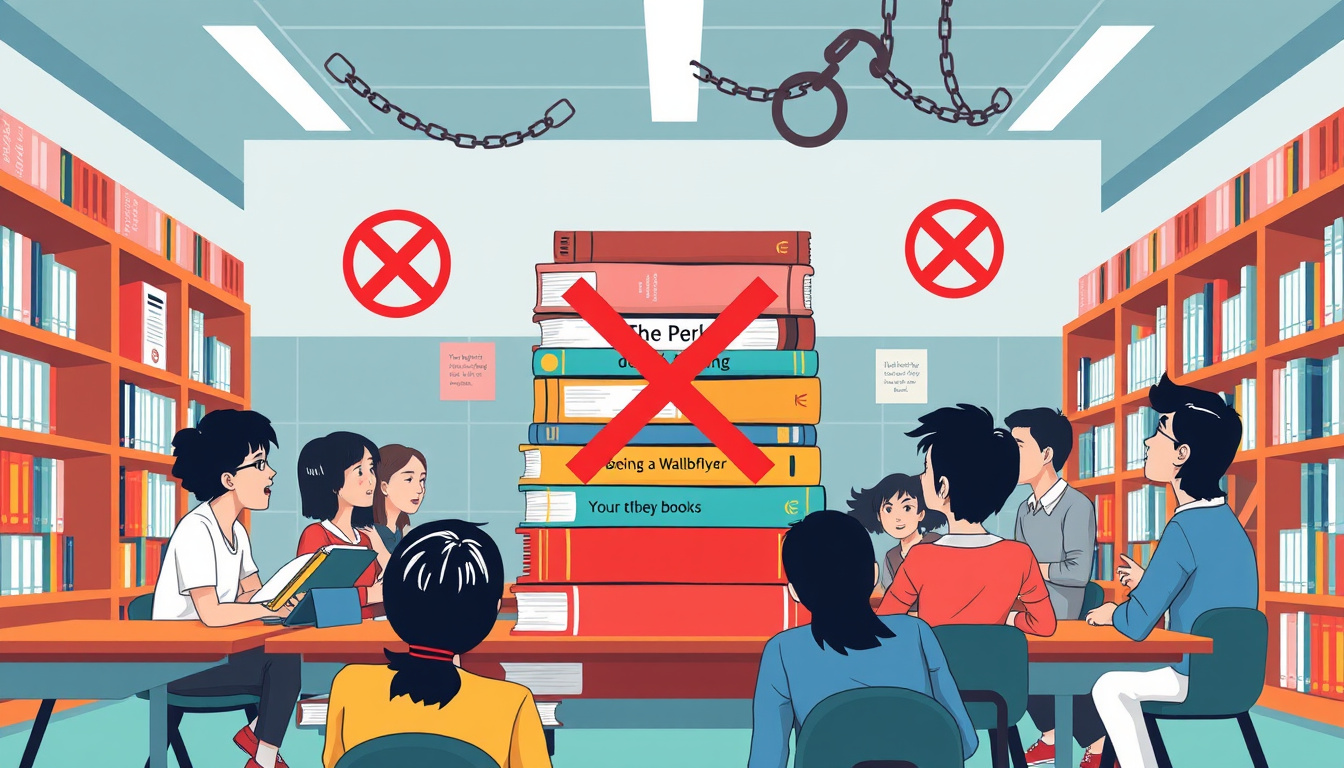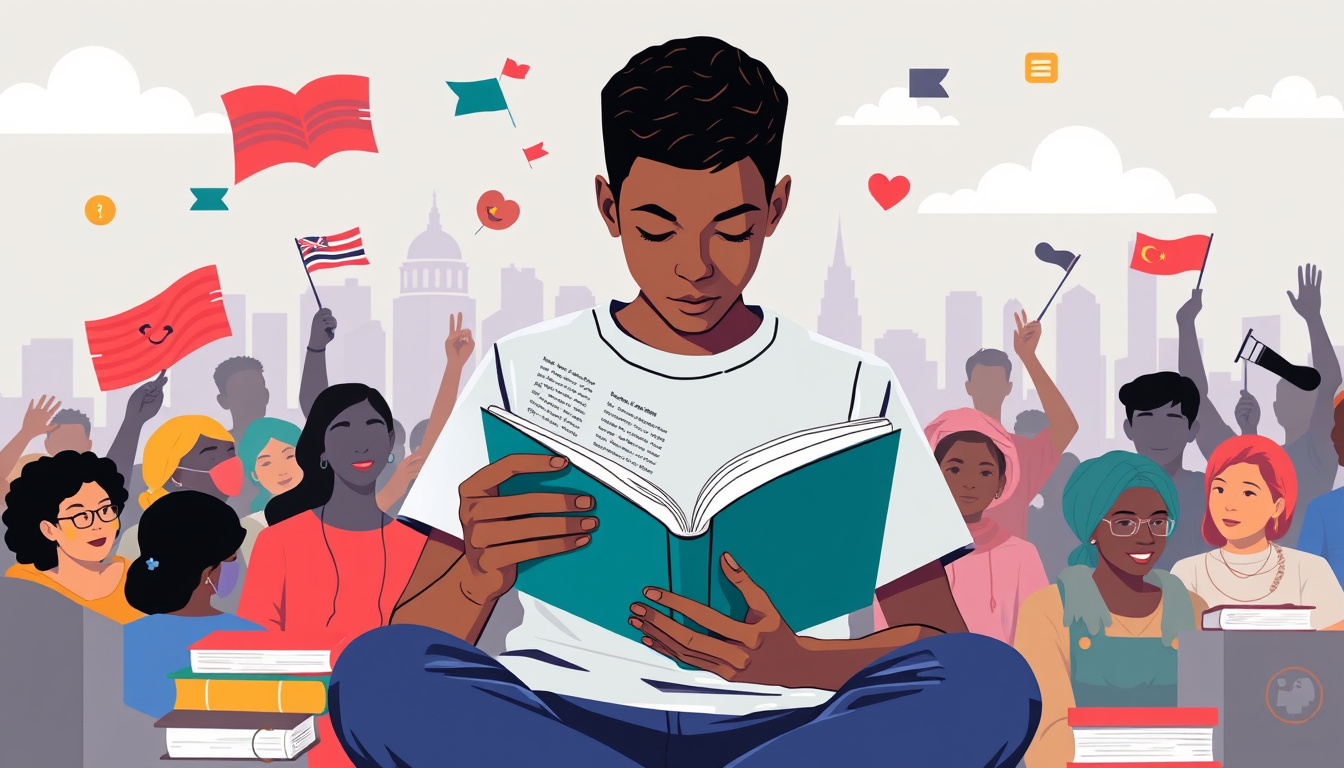Physical Address
304 North Cardinal St.
Dorchester Center, MA 02124
Physical Address
304 North Cardinal St.
Dorchester Center, MA 02124

Stephen Chbosky’s The Perks of Being a Wallflower has become a staple of contemporary young adult literature, offering readers an intimate glimpse into the trials of adolescence. Despite its acclaim, the book has faced significant backlash, resulting in numerous bans and challenges in schools across the United States. This article delves into the reasons behind these controversies, exploring the themes that have sparked debates about censorship and the impact on students.

At its core, The Perks of Being a Wallflower is a coming-of-age story that navigates complex topics such as mental health, sexuality, drug use, and sexual abuse. The protagonist, Charlie, writes letters to an anonymous friend, revealing his innermost thoughts and experiences, including coping with trauma, navigating friendships, and exploring his identity. The candid portrayal of these sensitive subjects is a major factor contributing to its challenges.
Critics argue that the book contains sexual content, profanity, and themes surrounding LGBTQIA+ identities that some find inappropriate for younger readers. For instance, discussions surrounding Charlie’s experiences with sexual abuse and his journey through mental health struggles resonate deeply with many adolescents, yet they can provoke discomfort in conservative communities.
Since its publication in 1999, The Perks of Being a Wallflower has been frequently banned or challenged in various school districts. Initial bans emerged in the early 2000s, notably in Fairfax, Virginia, and Texas, often initiated by parent groups concerned about its content. Over the years, reasons for challenges have included claims that it promotes homosexuality, depicts drug use, and contains explicit sexual references.
While some districts have moved to retain the book after thorough review processes, others, such as those in Glen Ellyn, IL, have opted to ban it altogether, revealing how opinions on its appropriateness can drastically differ even within the same state.
In 2023, the Conroe Independent School District in Texas made headlines by deciding to remove The Perks of Being a Wallflower from classroom curriculums after extensive community discussion, although the book remains available in school libraries. Such decisions often reflect a broader national trend where educational institutions are increasingly asked to reassess their materials in light of perceived “obscene content.”
The frequent challenges to Perks raise crucial questions about censorship in educational contexts. Stephen Chbosky himself has expressed his views on the importance of free expression, emphasizing that while robust debate about curriculum is necessary, the silencing of voices through bans is detrimental. He argues that literature serves a vital purpose in illuminating difficult topics for young people, enabling them to feel less isolated in their struggles.
Supporters of banning certain books often cite the need to protect children from exposures they consider inappropriate. However, opponents contend that stifling access to such narratives denies students the opportunity to engage with important societal issues, ultimately hindering their ability to think critically and empathically.
In the face of widespread challenges, the ongoing advocacy for The Perks of Being a Wallflower highlights the book’s meaningful conversations about identity, acceptance, and resilience. Many readers have expressed gratitude for the book’s ability to provide solace during challenging times, reaffirming the need for honest discussions surrounding its themes.
The Perks of Being a Wallflower is much more than a contested book in schools; it is a powerful narrative that reflects the realities faced by many adolescents today. The ongoing debates about its appropriateness underscore broader societal tensions related to censorship, the protection of youth, and the importance of literature as a tool for understanding complex issues. In a landscape where young adults navigate a myriad of challenges, the right to access diverse stories like Charlie’s can be pivotal in promoting empathy and resilience. As discussions around the book continue, it serves as a reminder of the necessity for open dialogue about the issues that shape our shared human experience.
If you enjoyed this post and you’re craving more stories that sizzle, check out my books at Arizona-Jewel. From slow burns to explosive encounters, there’s a story waiting to sweep you away.